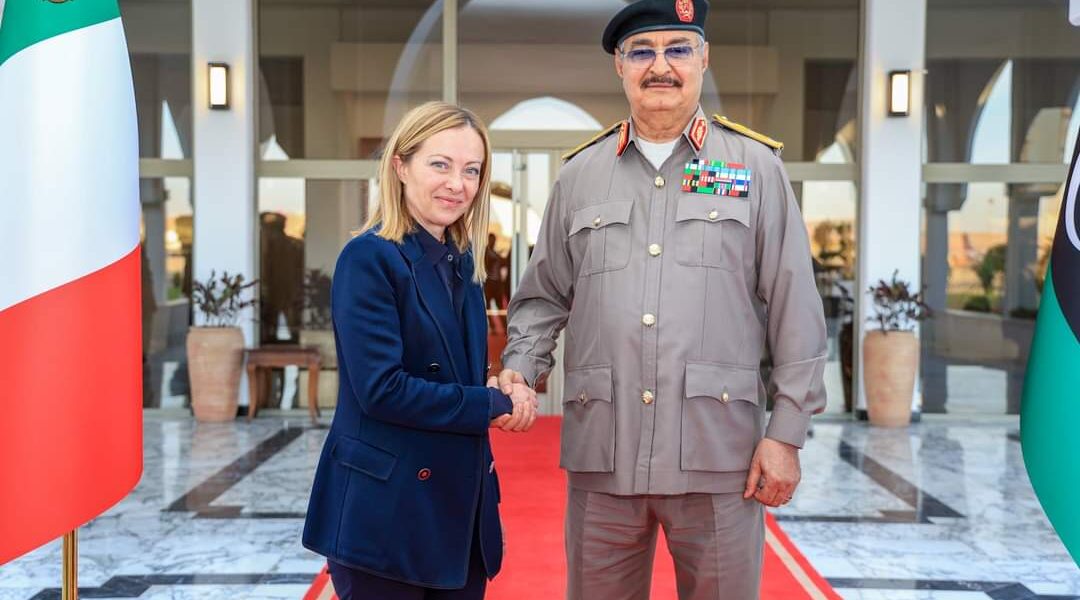Putin Expands Russia’s Influence in Libya Through Military Cooperation with Khalifa Haftar
In recent developments, Russia has been increasing its military and defense cooperation in eastern Libya, aiming to expand its footprint in the region. Last week, Moscow pledged to enhance the capabilities of Libyan eastern forces led by Khalifa Haftar. This commitment was made during a visit by Russian Deputy Defense Minister Yunus-bek Yevkurov, who arrived in Libya on May 31st and met Haftar in his office in Benghazi. This marks Yevkurov’s fifth visit to the city since August 2023, underscoring Russia’s strategic interest in Libya.
Russia’s Strategic Moves
While global attention remains focused on other regions, Russian President Vladimir Putin is making significant moves to extend Moscow’s reach in Africa. The forces led by Khalifa Haftar belong to the eastern faction of Libya’s two rival parliaments. Putin has supported Haftar since at least 2018, primarily through the private military contractor Wagner Group, which began training Haftar’s troops amidst Libya’s ongoing civil strife following the ousting of Muammar Gaddafi in 2011.
Libya’s Political Landscape
Libya remains divided between two administrations: the internationally recognized Government of National Unity (GNU) in Tripoli, which controls about a third of the northern region, and Haftar’s eastern-based administration, which controls the remaining two-thirds of the northern area. The rest of the country is largely a sparsely populated desert. Russia backs Haftar in the east, while Turkey supports the GNU in the west. Putin’s interest in Libya is driven by the country’s rich oil reserves and lucrative construction contracts.
Military and Economic Interests
Khalifa Haftar seeks advanced air defense systems to protect his forces against rival factions, alongside training for his air force pilots and special forces. In exchange, he offers air bases for Russian forces, facilitating Moscow’s deeper incursion into North Africa. Libya’s vast oil reserves and significant mineral wealth make it a critical player in the geopolitical rivalry between Russia and the US.
Geopolitical Tensions
Haftar’s growing ties with Putin have raised alarms in the US and the European Union. Last year, US officials met Haftar in Benghazi to urge the removal of foreign forces from the region. The ongoing standoff between Moscow and the West over Russia’s invasion of Ukraine adds another layer of tension. Washington is particularly concerned that a strengthened Russian presence in the Mediterranean could enable Moscow to spy on America’s European allies.
Conclusion
Russia’s maneuvers in Libya are part of a broader strategy to expand its influence in Africa, a continent rich in resources and strategic opportunities. As Putin deepens military cooperation with Haftar, the geopolitical rivalry in the region intensifies, with significant implications for global security and economic interests. The US and its allies will need to closely monitor these developments to counter Russia’s expanding footprint in North Africa.





